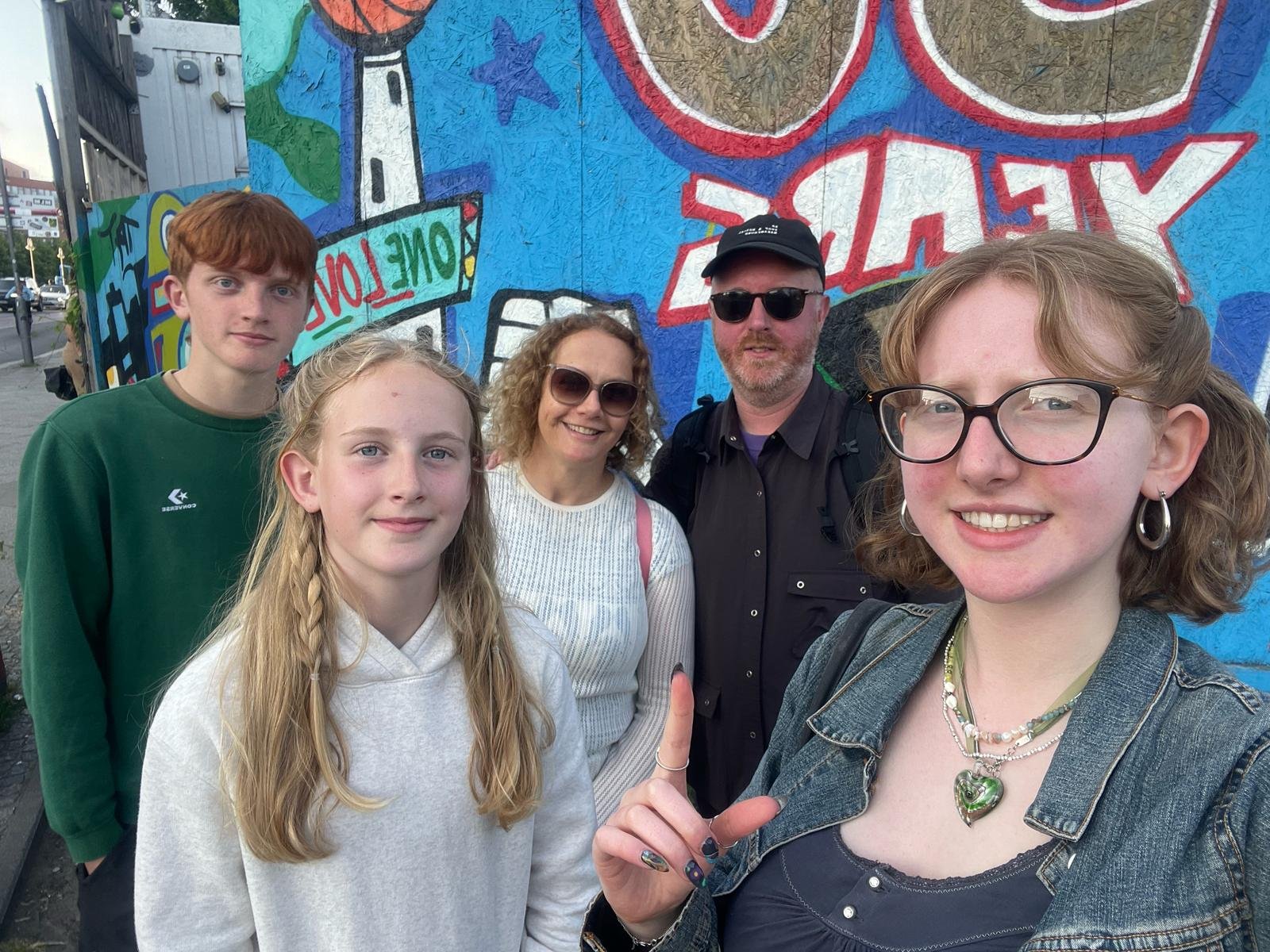Rachel James
BIO
Neuroscience researcher at the University of Edinburgh (UK). Freelance science editor. Mother of three.
“My career path does not fit with the linear expectation of academic research, but it has allowed me to work in a way that suits me and my family.”
I had never given much thought to becoming a mother. Indeed, my family were surprised when I announced I was pregnant as I had been outwardly career-focused. I had gone to a conference during my first postdoc to ‘build my network’, yet returned wanting to start a family. My recollection of this conference was pregnant women everywhere; it felt like a wake-up call to the tick-tocking of my biological clock.
My first daughter arrived in 2005, conveniently at the same time as my contract ended. The standard maternity leave in the UK had just been increased from 3 to 6 months, but any returning mother said that 6 months was still not long enough. I was glad not to have the pressure of a return date hanging over me. In hindsight, this was when I lost the chance to advocate more strongly for my career, alongside a partner who had job stability, tangible career progression, and the financial compensation needed to support a growing family.
I was at home for over a year with my daughter, returning to work in the same lab before moving on to another group at the same university. I was pregnant with my son at this stage but kept it quiet while job hunting. This meant I had to tell my new (female) boss within weeks of starting that I was pregnant. This did not go down well and it was not a good position to be working from.
I took just under a year of maternity leave this time and already knew when I returned that I wanted a third child. I could not see this happening with the hurdles imposed by fixed-term contracts. Unfortunately, nearly two decades later, I don’t see this being any easier a choice. To me, mixing the instability of contracts with pregnancy/maternity, massively disadvantages women scientists at the first rung of their career. I am amazed that it is still so underappreciated.
At the time, there were only trickles of talk about the challenges women face in their research careers. Not seeing any examples of careers outside the norm, I researched other options. This led to me taking an 8-year career break.
During this time, I secured flexible work as a freelance science editor and lecturer. I also had my third child. I had been fortunate with my first two pregnancies, yet this time around I had difficulties conceiving.
Following a miscarriage when I was 35, I asked for possible explanations. I was told, not unkindly, that in terms of my reproductive health I was ‘geriatric’. Fair enough. I had my second daughter a year later. By 44, I had gone through an early, albeit natural menopause.
I suspect now that some of the problems I had conceiving were due to my changing hormone levels. If I had prioritised my career and waited to start a family, I have no doubt my family would look very different.
In 2018, I returned to my research career on a fellowship sponsored by the Daphne Jackson Trust. This career re-entry scheme provided me with the support and training I needed to restart my research career. Unfortunately, despite several follow-on funding applications, I was not able to continue the research I started during my fellowship. I am now employed on another postdoctoral contract. My career path certainly does not fit with the linear expectation of academic research. But it has allowed me to work in a way that suits me and my family.
After my first child, I started working part-time and continued to do so until my current job role. There were many reasons for me choosing to work part-time, mostly though, because motherhood is a ‘once in a lifetime’ opportunity. Perhaps naively, I feel that a career can happen anytime. On reflection, choosing to work part-time in a sector that only values and rewards overwork has probably had the biggest negative impact on my career.
Somewhat paradoxically, becoming a mother was the best investment I ever made in my career. I have learnt so much about myself from raising my children. Because of this, I bring a better version of myself to work. The skills I gained parenting helped me through a particularly difficult transition at the end of my fellowship: perseverance, emotional honesty, adaptability, acceptance, and perspective. My oldest daughter is currently in the third year of an undergraduate Maths degree. I don’t know yet whether my other two children will choose STEMM in their post-school paths. But no matter what they do, I want for them all to have more freedom in how they choose to combine their lives and careers. With a little bit of imagination, I like to believe we could get there.

